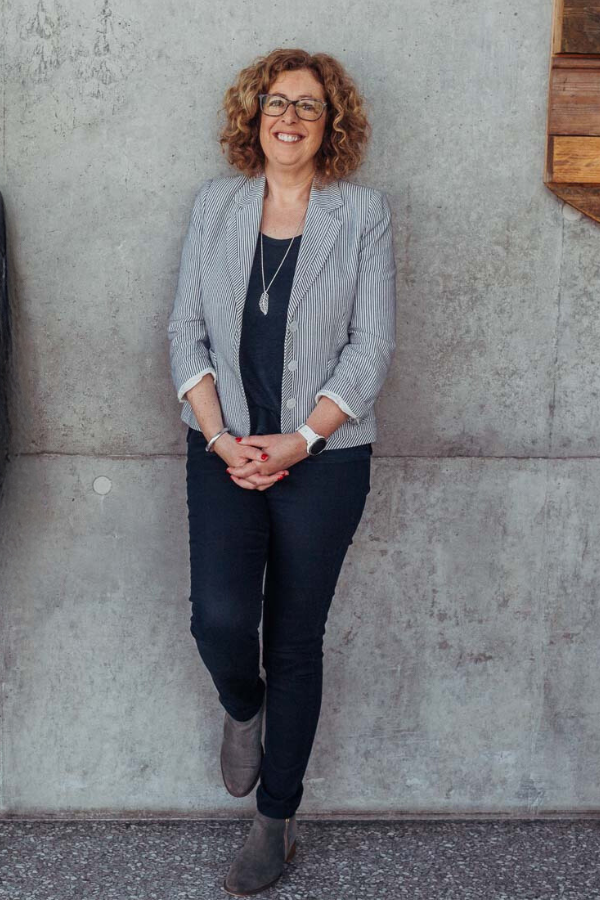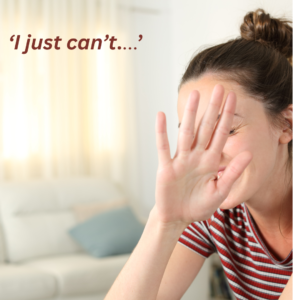‘When I was taught how to, I was so much better able to support her. I believe that it made a difference to the robustness of her ultimate recovery’
by Deirdre Reddan

I well remember the fear and trepidation I felt when my daughter came home from inpatient treatment. How would I manage mealtimes? Was I strong enough to do this? Did I have the skills? I’d read all the books – but would I be able to do this?
And then I got the opportunity to learn the skills, to learn what the therapists and other eating disorder professionals do – and I believe it made the world of difference to her recovery, and led me ultimately to this work, which is incredibly rewarding and fulfilling, and hard at times!
So why does family support matter?

When an eating disorder develops in a family, it really is like a bomb going off – it affects absolutely everybody.
Everyone around the person feels that they’ve landed on another, hostile, planet. They feel like they’re walking on eggshells, saying the wrong thing all the time (or not knowing what to say), feeling terrified, frustrated and, often, overwhelmed.
And, rightly, all the focus is on the person with the illness – getting them help, putting a treatment team in place etc.
And where does that leave everyone else?
Often without the knowledge and skills they need to effectively support their loved one in eating disorder recovery – and often, missing an opportunity to make a difference to that recovery!
Often making things harder by inadvertently saying the wrong things, by accommodating the eating disorder rather than supporting their person.
Knowledge is power.
We believe, passionately, that families are the hidden (and often untapped) superpower in eating disorder recovery. And this is fully backed up by research:
Positive family engagement can lead to better outcomes: fewer relapses, longer duration between relapses, reduced hospital admissions, shorter inpatient stays and improved compliance to medication and treatment plans.
And yet, families, especially families of adults, are not offered support – and where they are, it’s not always the right type of support.
(And, by the way, we interpret the word ‘family’ loosely: when we mention family, we include parents, partners, family members and friends).
So how can we, as a family, make a positive difference? Here’s 4 ways:
1. We can educate ourselves
The first thing I always tell the families I work with, is to go gently on themselves and their loved one. Their loved one didn’t ask for this; the parents didn’t cause it.
The family has never been in this situation before, so it’s not a surprise that they’re saying the wrong things, or feeling utterly overwhelmed.
Educating themselves about the illness, understanding it a little bit better, can make such a difference. Understanding that this is not their person at their best, healthiest self can help.
2. We can learn the skill
Information and understanding are important, yes.
But we as family members can equip ourselves with the skills that we need, in essence the skills the professionals have, to support our loved one in their recovery journey.
As anyone who has worked with me has heard me say, there are 168 hours in a week. If your loved one is receiving outpatient treatment, that’s one hour a week with a therapist and half-an-hour to an hour with a dietitian.
That leaves a lot of hours for us at home! And, obviously, the more skills and knowledge we have, the more we can support our loved ones – effectively.
That is why Zuzanna and I teach the practical skills and strategies – we don’t just share the theory, though of course we do that too!
We need to learn the language of the hostile planet that we’ve landed on. Sometimes we can say something that is really triggering – and we just don’t understand why. But when we learn the ‘correct’ language, it can make a world of difference.
3. We can look after ourselves
Remember my comment at the start about the impact eating disorders have on the whole family? It is utterly overwhelming to support someone – and when it’s your child, it is completely terrifying.
Will they ever recover? How long will this take? Will they have an eating disorder forever? Will they die? Is this my fault?
And, in the process, we forget to take care of ourselves.
It’s so important that we do! Why?
Because we need to role-model self-care to our loved one. After all, when you think about it, someone with an eating disorder is not taking care of themselves, though it’s not on purpose of course.
Often, the journey can be more of a marathon than a sprint, and an exhausted carer is an ineffective carer, so we need to find ways to sustain ourselves, to maintain a sense of well-being, no matter how hard that is.
And, finally, the more we can regulate our own emotions, staying calm, looking after ourselves, the more that we can help them stay calm too. It’s called emotional co-regulation and it’s a key tool in our ‘superpower toolbox’!

4. We can advocate for our loved ones
As family members, we are the experts on our loved ones. We know them and love them better than anyone else, which is why we should always, no matter the age of our loved ones, be a key member of the treatment team.
We know what foods they liked/didn’t like before the illness developed, (this is particularly important where our loved one is neurodiverse), we know what brings them joy and what techniques are likely to work or not. While it might not feel like it every day, focusing on moments of joy is always very important.
We do have a voice in treatment and recovery and, as our loved ones’ no 1 supporter, we need to speak up and advocate for them when we, or they, aren’t happy with treatment.
We need, unfortunately sometimes, to advocate for them.
And clearly, the more knowledge and understanding we have, the more effectively we can do this.
So, how can you learn how to do all this? To navigate eating disorder recovery as a caregiver?
Take the first step by joining us for a FREE webinar: ‘Confidently Navigating Eating Disorder Recovery: A Caregiver’s Guide’ on Saturday 26th October at 10am.




